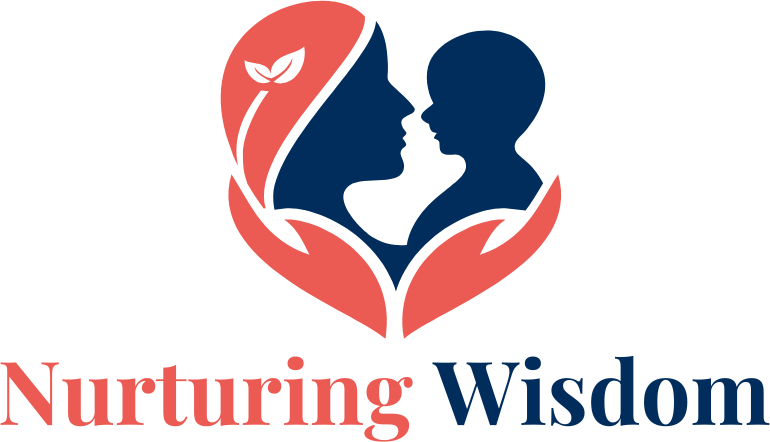Why Mindfulness Matters for Parents
In our fast-paced world, it’s easy for parents to feel overwhelmed. Between juggling demanding jobs, looking after children, and countless other responsibilities, maintaining emotional wellbeing often falls to the bottom of the priority list. This is where cultivating mindfulness comes in. By incorporating mindfulness into our daily routines, we have a powerful tool at our disposal to help us navigate the complexities of modern-day parenting.
Mindfulness Tips for Parents
It may feel daunting to start a new practice such as mindfulness, but remember, it’s all about taking small steps. Here are a few simple mindfulness tips for parents:
- Start and end your day mindfully: Try to engage in a mindful activity as soon as you wake up and right before you go to sleep. This could be anything from a few deep breaths to a short meditation session.
- Use mindfulness apps: There are various mindfulness apps available. These can guide you through short mindfulness exercises and help you make mindfulness a daily habit.
- Practice mindful listening: When your child is speaking to you, try to really focus on their words. This not only helps you bond with your child, but it also improves your mindfulness skills.
- Try mindful walks: Walking is a great opportunity to practice mindfulness. Instead of focusing on where you’re going, try to pay attention to the sensations of walking and your surroundings.
The Power of Personal Stories
Sharing personal stories of mindfulness can be a great way to inspire others to start this practice. Hearing about real-life experiences can help break down the misconceptions surrounding mindfulness and make it much more approachable. Here’s a story from a parent who experienced the benefits of mindfulness first-hand:
“When my son was struggling with anxiety, it was a very challenging time for our family. I had heard about mindfulness and decided to give it a try. I started with just a few minutes a day and gradually increased the time. Over time, I noticed a significant change. I was more patient, more engaged, and I was better equipped to handle my son’s anxiety. Mindfulness helped me become a better parent.”
Emotional Wellbeing and Mindfulness
Multiple studies have confirmed the positive effects of mindfulness on emotional wellbeing. Mindfulness can help manage stress, reduce anxiety, and foster emotional balance. Importantly, these benefits aren’t restricted to adults. Children can also benefit from mindfulness. According to the U.S. Department of Education, mindfulness can support children’s emotional and mental health. Moreover, a list of children’s books dealing with mental health, featured on Child Mind Institute’s website, includes several that introduce mindfulness concepts in an accessible way.
Calming Strategies for Parents
Combining mindfulness with calming strategies can make a big difference in a parent’s daily life. Here are a few techniques to help parents stay calm during those high-stress moments:
- Deep Breathing: When you’re feeling stressed, taking a few deep breaths can instantaneously calm you down. It’s a simple yet effective technique you can employ anywhere, anytime.
- Progressive Muscle Relaxation: This involves tensing and then releasing different muscle groups in your body. It can help relieve tension and promote relaxation.
- Visual Imagery: Visualizing a peaceful scene can help you relax and decrease stress levels. Imagine yourself in a beautiful, serene place to help ease your mind.
Remember, the journey of mindfulness is personal, and every individual will have their unique way of practicing it. Embrace this journey and see how it positively impacts your life as a parent.
Mental Health Benefits of Mindfulness
As a parent, maintaining mental health is crucial not only for personal well-being but also for the benefit of the children. Practicing mindfulness has proven health benefits; it cultivates a balanced mental state and provides relief from common stress-induced health problems like anxiety, depression, and insomnia.
According to the National Institutes of Health, mindfulness has been shown to reduce symptoms of stress and anxiety and increase positive emotions and improve overall mental health. Additionally, practicing mindfulness can improve resilience — the ability to recover and flourish in the face of life’s challenges.
Mindful Parenting
Mindful parenting means applying mindfulness principles to the challenges and demands of parenting. It involves responding to your child’s needs with kindness and intention rather than reacting out of frustration or stress.
- Observe Emotions: When stressed or overwhelmed, take a moment to observe what you’re feeling. This helps to create a small space between the stressful event and your reaction to it, allowing for a more thoughtful response.
- Non-judgmental Acceptance: Acceptance doesn’t mean resignation. It means acknowledging things as they are, without casting judgment. This can be incredibly liberating and stress-relieving.
- Effective Communication: Strive to clearly express your feelings and needs to your children, creating an open dialogue in which everyone feels heard and understood.
By adopting these practices, parents can foster a peaceful and compassionate home environment.
Mindfulness Resources for Parents
Parents often struggle to find the time, energy, or tools to practice mindfulness. Thankfully, numerous resources can be helpful, including books, apps, and websites.
- Mindfulness Apps: Try Calm, a popular app that offers guided meditations, soothing music, stories to help you sleep better, and more.
- Online Resources : There are various online articles and blogs available to parents looking for mindfulness tips and strategies. Websites like ABTAba provide several calming strategies for special needs situations.
- Books : Many books offer practical, easy-to-follow mindfulness exercises and advice for parents, like the ever-popular “Everyday Blessings: The Inner Work of Mindful Parenting”.
Mindfulness and Pregnancy
Mindfulness is even valuable for expecting mothers, helping to manage the stress and anxiety that can arise during pregnancy. Applying mindfulness can manage emotions during pregnancy effectively, by staying present, keeping the mind focused, and panic at bay.
The Next Chapter in Your Mindfulness Journey
There are no quick fixes when it comes to mastering mindfulness, but each step forward brings benefits. Whether you’ve just started, are contemplating to start, or are deep into your mindfulness journey, a little time each day dedicated to mindfulness practice can go a long way in bringing about significant changes in your life. Remember, mindfulness is accessible to everyone, regardless of age or background.
“The little things? The little moments? They aren’t little.” – Jon Kabat-Zinn

